People argue about all aspects of ultralight hiking. One thing is inarguable—the lighter your kit, the more enjoyable your hike will be. No one ever complained about carrying too little weight. That said, there is a nexus of product characteristics that have to be considered, and those considerations are entirely personal.
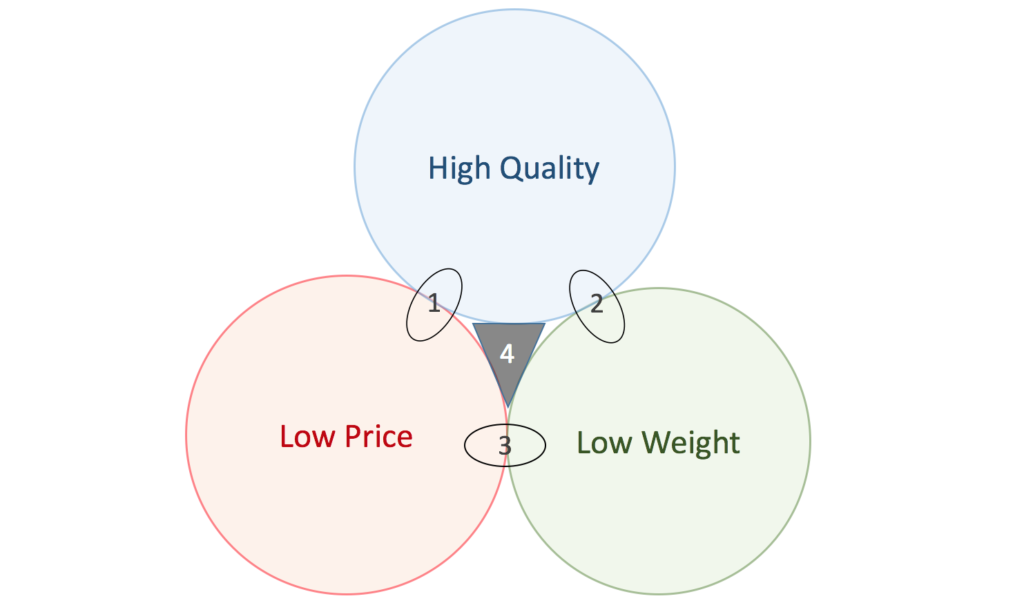
Typically, the main characteristics that must be compared are price, weight, and quality. Quality is relative; it can mean durability, convenience, reliability, warranty, etc. Look at the diagram above. In a perfect world, everyone would adopt products that fall into Nexus 4.
- Nexus 4—high quality, low price, low weight (ex: homemade freezer bag cooking cozy)
But there are limitations in the real world. We’re usually forced to compromise on one characteristic.
- Nexus 1—low price, high quality, high weight (ex: warm, well-made, heavy sleeping bag)
- Nexus 2—high price, high quality, low weight (ex: expensive, ultralight, durable tent)
- Nexus 3—low price, low quality, low weight (ex: cheap, lightweight, non-breathable rain jacket)
This is the reality we face. When buying gear on a budget, we’re forced to go with low price or high weight. But it’s not always about price. For instance, I carry a Jetboil rather than one of the many lighter and cheaper cooking options out there. Why do I choose it? Because it’s so easy to use. For me, the quality justifies the high price and relatively high weight.
People who never compromise on weight often learn the hard way that you can be ultralight and miserable. Ask the cowboy camper who wakes up covered in mosquito bites. Ask the homemade stove user who can’t keep her flame lit. Ask the hammock camper who is still setting up when everyone else has already fallen asleep in their tents. If I’m only relatively heavier, yet much happier, then I made the right choices for me.
That said, if we make the choice to prioritize quality (a.k.a. convenience) every time, then our base weight is going to slowly creep up on us. That’s why people say you shouldn’t skimp on your big three.
- Pack
- Sleep system
- Shelter
If you go with Nexus 2 (or Nexus 4, if you can find it) products for these three systems, you can freely adopt Nexus 1 and Nexus 3 products for most other aspects of your kit and still call yourself ultralight.
Weigh your options, but try not to get obsessed with weight, price, or quality. Ultralight is relative. Hiking and camping are meant to be fun. Finding your comfort zone in the nexus is the recipe for success. Hike your own hike!

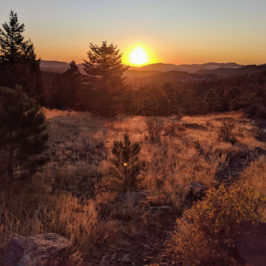
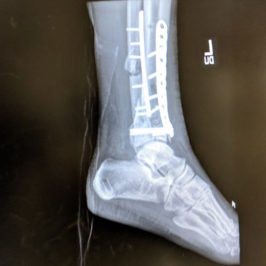
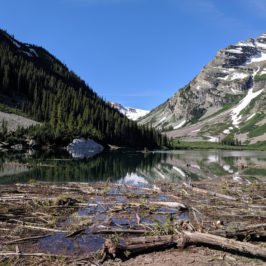
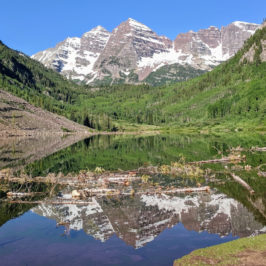
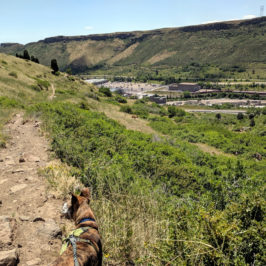
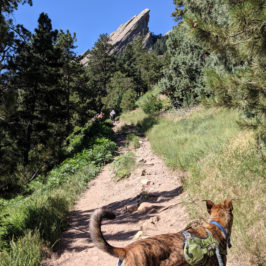
Leave a Reply